Vocus CI-TOF from TOFWERK enables immediate measurement of trace substances in the air.
Instantaneous Analysis
It is possible for users to directly sample air to measure, define, and report volatile organic and inorganic compounds (VOCs and VICs) in complicated mixtures in real-time, without chromatography.
Unmatched Performance
Vocus offers sub-ppt limits of detection for a different range of compound classes.
Built for Exploration
Laboratory performance that can be taken anywhere. A sturdy and sleek design means that the instrument goes where the sample is, not the other way around.
Features
An extensive toolbox to fulfill the requirements of researchers and industry.
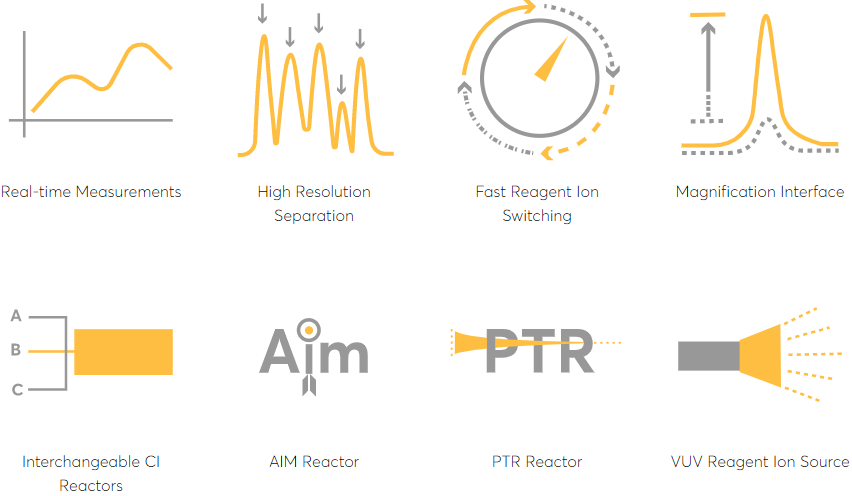
Image Credit: TOFWERK
Real-Time Measurements
Report concentrations of volatile inorganic and organic compounds (VICs and VOCs) instantly.
Interchangeable Reactors
Users can increase the range and diversity of detectable compounds by exchanging the PTR and Aim Reactors. Let the instruments grow with the research or measurement goals by the addition of multiple reactors during purchase, or upgrade later as research directions changes.
Magnification Interface
It is possible for the users to transfer ions from the Vocus reactor to the TOF analyzer with the greatest possible efficiency for enhanced sensitivity.
High Resolution Separation
Individual isobars allow for confident and robust analysis of complicated mixtures.
Fast Reagent Ion Switching
Reagent ion switching allows real-time monitoring utilizing various reagent ions with a single reactor. Switching timescales are between 50 and 100 ms for the Aim Reactor and as quick as 10 seconds for the PTR Reactor.
VUV Reagent Ion Source
A bright, secure, and strong ion source for the production of a range of reagent ions utilized in Vocus Aim.
Optimized for use in Laboratory, Industrial, and Mobile Applications
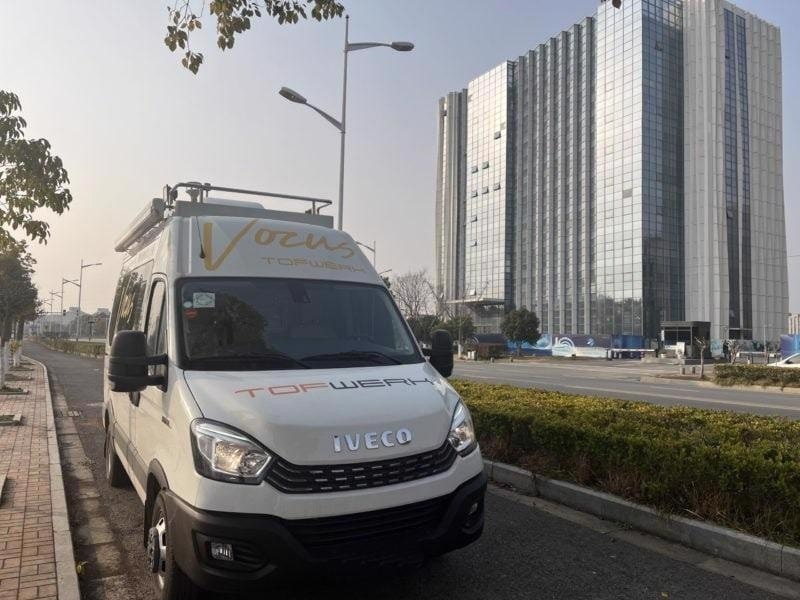

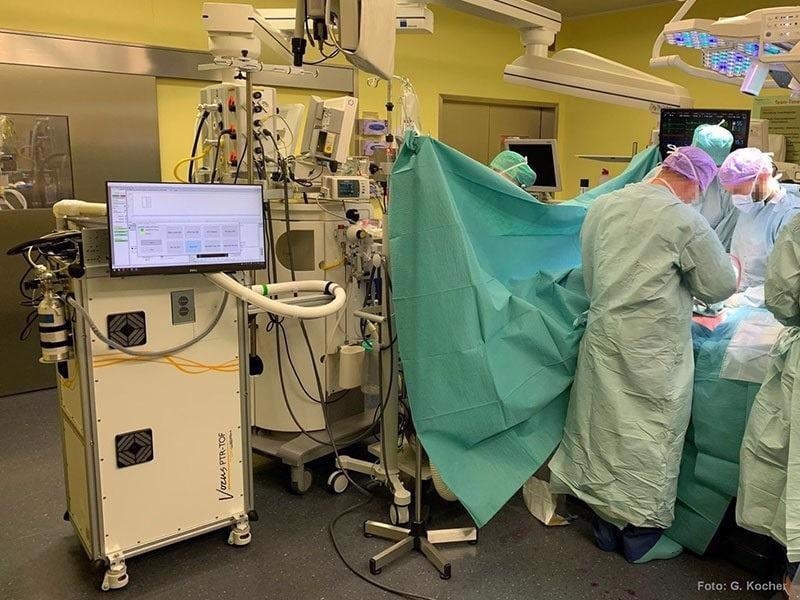
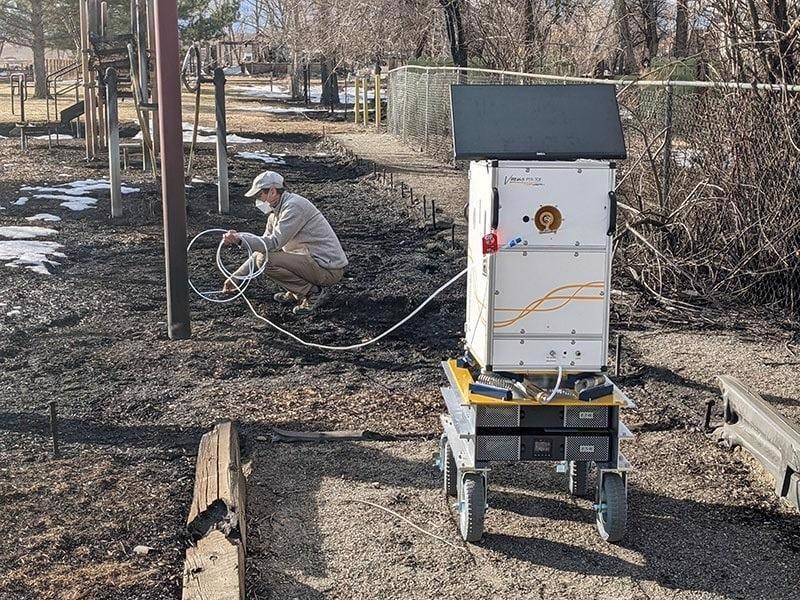
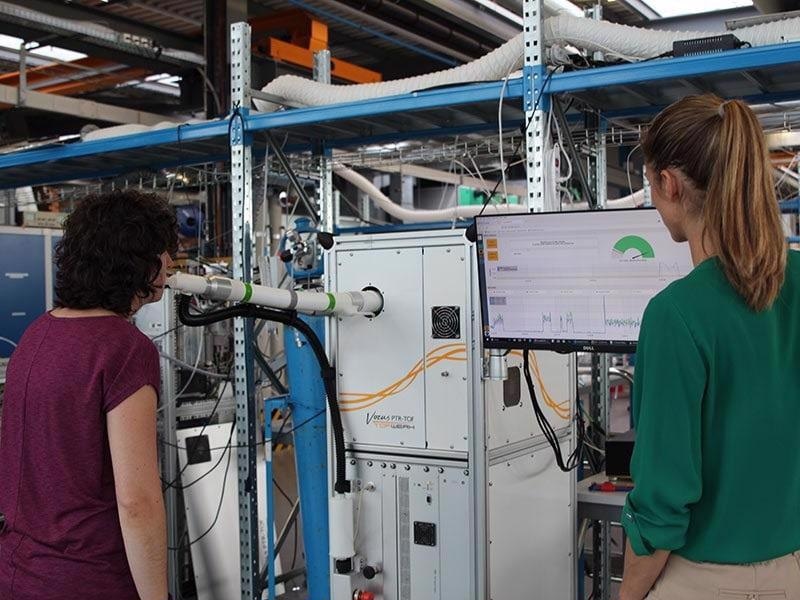
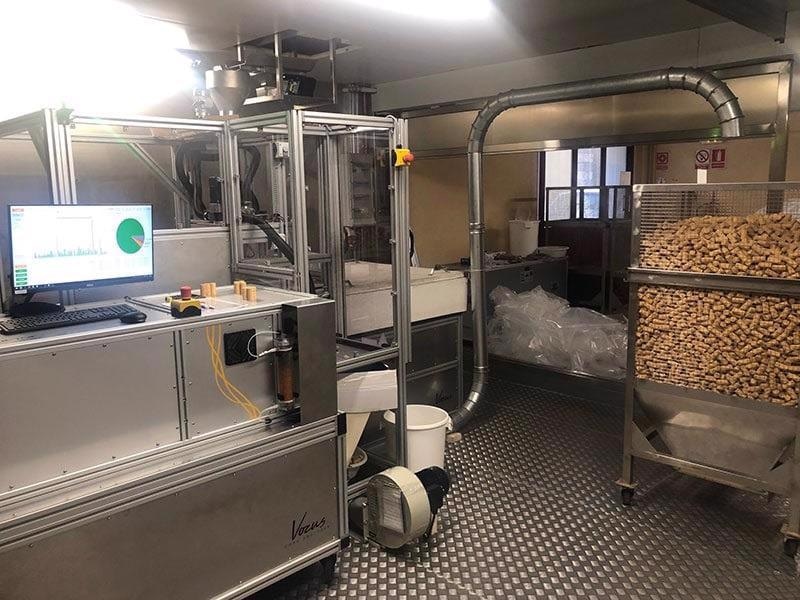
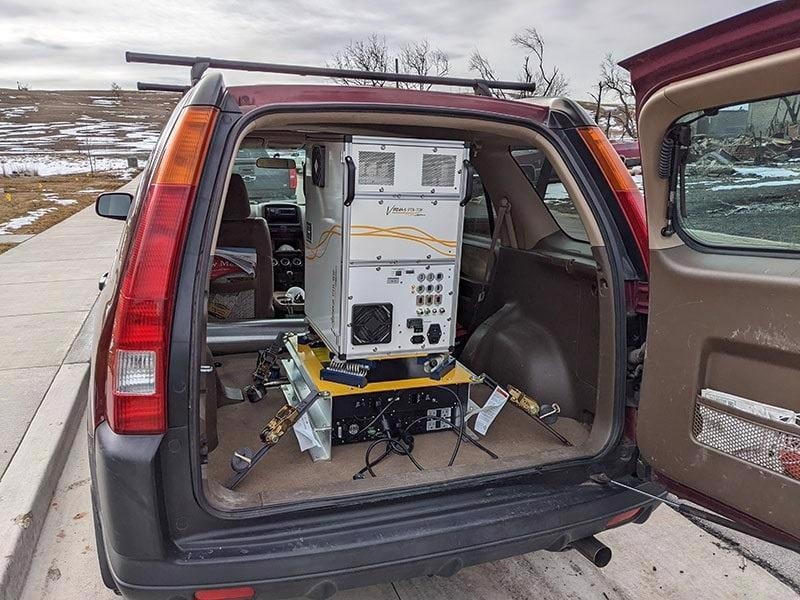
Image Credit: TOFWERK
Reactors
Reactors for Flexible Ionization
Users can target their compounds of interest. Vocus ionizes molecules by regulated reactions with reagent ions in a reactor.
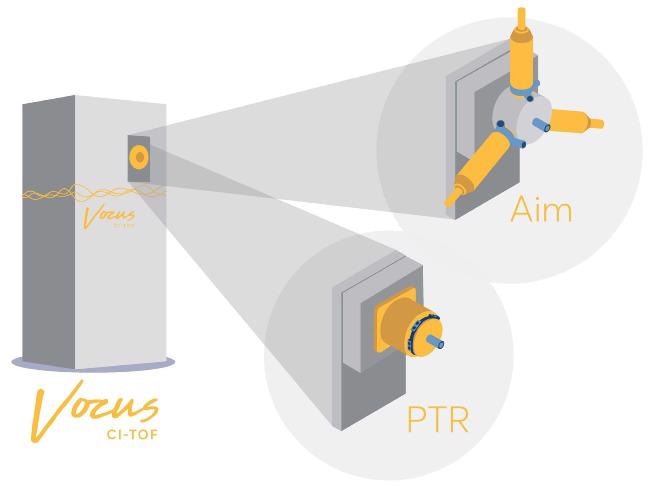
Image Credit: TOFWERK
Users can make use of one reactor with a single reagent ion.
Or, use one reactor that has the potential to switch between several reagent ions in a single experiment.
Or, exchange two reactors with various reagent ions.
PTR
The PTR reactor (Proton Transfer Reaction) is an efficient system that has been developed for the analysis of a wide range of volatile organic compounds (VOCs). The proprietary Vocus PTR Reactor decreases wall losses and concentrates ions with radiofrequency (RF) fields to give users the utmost sensitivity and lowest detection limits.
Furthermore, the Vocus PTR Reactor is additionally compatible with other reagent ion schemes, such as ammonium adduct ionization —to target wider ranges of compounds.
Available PTR Reagent Chemistries
Table 1. Source: TOFWERK
| Reagent Ion |
Analyte Compound Classes |
Example Applications |
| H3O+ (PTR) |
Small oxygenated compounds, polar molecules, BTEX, PAHs, other aromatics |
Air quality analysis, food and flavor, environmental contamination |
| NH4+ |
Highly functionalized VOCs, oxygenated compounds, peroxides |
Explosives and narcotics detection, photochemical oxidation products |
| NO+ |
Alcohols, substituted aromatics, cyclic and branched alkanes, long-chain semi-volatile alkanes |
Vehicle exhaust, wine contaminants |
| O2+ |
Alkanes, carbon disulfide, ammonia, halogenated compounds |
Ambient air monitoring, vehicle exhaust |
AIM
The Vocus Aim reactor provides the quick and sensitive detection of trace organic and inorganic compounds covering the complete volatility range. The flow tube reactor functions at an increased pressure to repress fragmentation of analyte ions and makes use of small VUV sources to produce both positive and negative reagent ions.
Ultra-sensitive chemical ionization via the usage of flexible reagent ion chemistries enables sensitive and selective ionization of a range of compounds.
Available Aim Reagent Chemistries
Table 2. Source: TOFWERK
| Reagent Ion |
Analyte Compound Classes |
Example Applications |
| I– |
Oxygenated organics, acids, peroxides, inorganic acids, inorganic compounds |
Ambient air monitoring, biomass burning, SOA formation, semiconductor |
| Br– |
Iodine containing compounds, HO2 radicals, mono carboxylic acids |
Ambient air monitoring, sea emissions |
Detection Suitability
With a range of reactors and reagents, the Vocus CI-TOF offers users maximum flexibility while specific compound classes have been targeted.
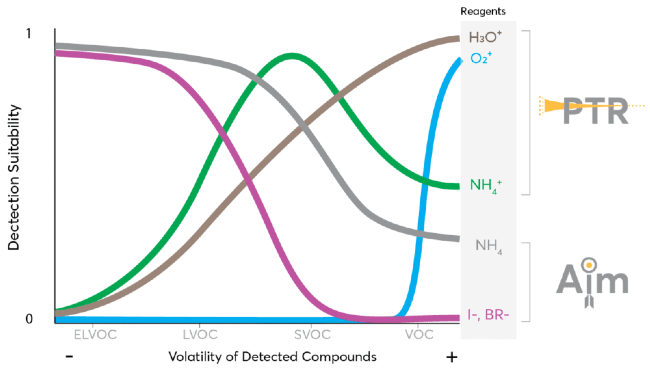
Image Credit: TOFWERK
Fragmentation
The Vocus Aim Reactor helps to remove fragmentation while volatile compounds are being targeted.
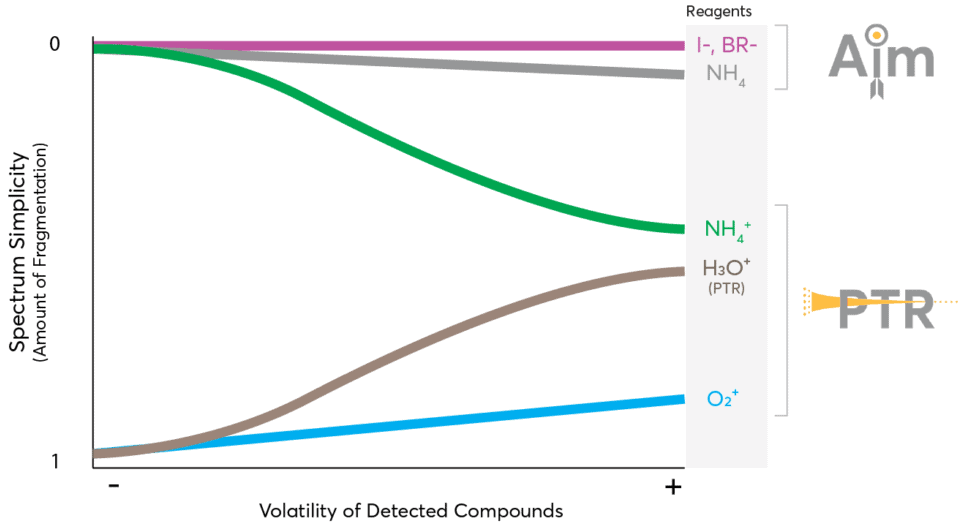
Image Credit: TOFWERK
Specifications
Models and Specifications
Choose the Reagent Ions for Analysis
The Vocus CI-TOF comes with a range of reagent ions — every ion being optimized for particular classes of compounds.
Table 3. Source: TOFWERK
| Application |
Common Reagent Ions |
| Ambient Air Monitoring |
PTR (H3O+), NH4+, O2+, NO+, I–, Br– |
| Food, Flavor, and Fragrances |
PTR (H3O+), NH4+, NO+, I– |
| Breath Analysis |
PTR (H3O+), NH4+ |
| Semiconductor AMC |
O2+, NH4+, I– |
Choose the Vocus CI-TOF Model
Table 4. Source: TOFWERK
| |
Resolving Powera |
LOD PTR |
LOD Aim |
Sensitivity PTR |
Sensitivity Aim |
Size |
Power |
Th/Th
M/ΔM |
pptv
1 min | 1 s
xylene |
pptv
1 min | 1 s
Levoglucosan |
> cps/ppb
xylene |
> cps/ppb
Levoglucosan |
kg | mm |
W |
| 2R |
10000 |
1 | 10 |
1 | 10 |
30000 |
30000 |
170 | 480 x 615 x 1480 |
800 |
| S |
5000 |
1 | 10 |
1 | 10 |
30000 |
30000 |
130 | 480 x 615 x 1130 |
800 |
| Scout |
4000 |
5 |
10 |
4000 |
4000 |
130 | 480 x 615 x 1130 |
800 |
| Eiger |
2200 |
20 |
— |
1000 |
— |
95 | 422 x 630 x 840 |
600 |
| Elf |
500 |
20 |
— |
500 |
— |
55 | 380 x 500 x 650 |
450 |
a. Resolving power at specified sensitivity. Each model can be operated with higher resolving power at reduced sensitivity.
Standard Components with Each Model
- Standby Valve: enables servicing and interchange of Vocus reactor hardware in the absence of venting (Models 2R, S, and Scout)
- Library of detectable compounds
- Tofware data post-processing
- Thuner software: Availability of automatic mass spectrometer tuning software
- Shipping container: Deployment with no disassembly needed.
- Touch screen control
- Vocus acquisition and control software.
- Automated gas calibration and zeroing with programmable cycling can be done
- Real-time reporting of calibrated concentrations for target compounds
- Single-click transitions between ready, shutdown, and sleep states